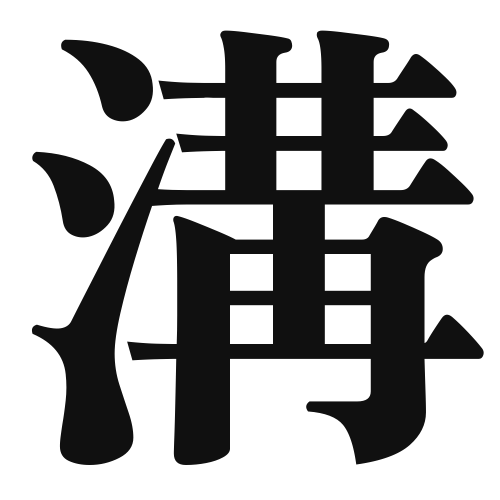1. Overview of Meaning
The kanji “溝” (pronounced “mizo” in Japanese) means “ditch” or “trench.” It refers to a narrow channel or groove, often used for drainage or irrigation purposes.
2. Formation and Radical
Formation of the Kanji: The kanji “溝” is a compound character (会意文字) that combines the water radical (氵) with the character “交” (meaning “to intersect” or “to mix”). This combination suggests a place where water flows or intersects.
Radical: The radical of “溝” is the water radical (氵), which is commonly associated with water-related meanings.
3. Examples of Usage
Common Words and Phrases:
- 溝 (mizo) – ditch
- 溝渠 (こうきょ, koukyo) – drainage ditch
Example Sentences in Daily Conversation:
- 「庭に溝を掘って、水を流すことにしました。」(I decided to dig a ditch in the garden to let the water flow.)
- 「溝が詰まっているので、掃除しなければなりません。」(The ditch is clogged, so we need to clean it.)
4. Synonyms and Antonyms
Similar Kanji:
- 川 (かわ, kawa) – river: While both refer to water channels, “川” denotes a natural watercourse, whereas “溝” refers to a man-made or smaller channel.
- 溜池 (ためいけ, tameike) – pond: This refers to a body of water, often created for storage, unlike “溝,” which is a channel.
Antonyms:
- 山 (やま, yama) – mountain: This represents an elevated landform, contrasting with “溝,” which is a low-lying channel.
5. Cultural and Historical Background
Relation to Japanese Culture: In traditional Japanese agriculture, ditches (溝) play a crucial role in irrigation systems, reflecting the importance of water management in farming practices.
Proverbs and Idioms: There are not many specific proverbs that include “溝,” but the concept of water channels is often associated with the flow of life and the importance of maintaining balance in nature.
